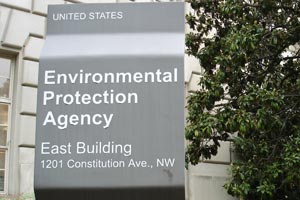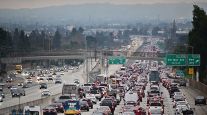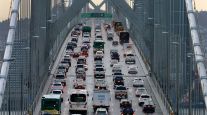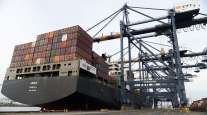Petition Asks for EPA to Test Cars Like Heavy-Duty Trucks

An environmental group is seeking to have every model of car and light trucks sold in the United States undergo on-the-road emissions tests, adding to calls for more aggressive efforts after revelations that Volkswagen AG rigged its vehicles to fool laboratory-based screening.
The Center for Biological Diversity petitioned the Environmental Protection Agency to require the on-road tests, replicating what the agency already does for heavy-duty diesel trucks.
“VW’s appalling actions show why the EPA must require on-road tests to catch car company cheats,” said Kristen Monsell, an attorney with the Tucson, Arizona-based nonprofit group.
“There’s no good reason for the EPA not to employ every method possible to detect fraud and protect public health and our climate. The Volkswagen debacle ought to be a wake-up call.”
The Wolfsburg, Germany-based carmaker has admitted fitting as many as 11 million diesel cars with software that detected when a test was being run on EPA’s treadmill-like devices and altered the engine performance so it would pass. The VW cheating went on for almost seven years and ultimately was discovered after a nonprofit group mounted monitors to cars and drove them up and down California highways.
On the road, the cars emitted as much as 40 times the permitted amount of smog-forming nitrogen oxides. VW has suspended sales of those vehicles, and CEO, Martin Winterkorn quit as investigators from Washington to Berlin have promised to punish those responsible.
The environmental-group petition aims to force EPA to do testing in real-world conditions as a reliable means to catch cheating companies. It also calls for EPA testing to determine if technology designed to evade regulations, known as defect devices, is prevalent.
The group also is asking for much higher fines from the National Highway Traffic Safety Administration for companies that violate fuel-economy standards because those rules directly relate to how much carbon dioxide cars emit — a gas that has been linked to global warming.
The petition asks both agencies to respond in 180 days.
Federal law provides citizens and groups the opportunity to ask for changes to regulation through petitions.
EPA already is planning to conduct tests to ensure every U.S. car, pickup and SUV with a diesel engine won’t include technology similar to the kind VW designed to cheat pollution laws, spokesman Nick Conger said.
Every combination of diesel engine and emissions-control system among light-duty vehicles will be tested, Conger said in an e-mailed statement. He declined to say if those tests would include on-the-road elements, though he said they would incorporate methods the California Air Resources Board used to detect Volkswagen’s defeat device.
The agency didn’t have an immediate comment on the Center for Biological Diversity petition.
EPA has said it is open to further changes in its testing program after the Volkswagen scandal. It has shifted resources from doing on-road testing for heavy-duty trucks and gasoline-powered cars to do the diesel tests.
“The agency has in the past and will continue to adapt its compliance program to help deliver the environmental benefits of our regulatory programs,” Conger said.
For decades, regulators have relied on automakers’ tailpipe tests to keep the air clean. Automakers test new models in the lab according to procedures designed by EPA. Regulators analyze the results and ask questions if they look suspicious. The agency does spot checks on about 15% of the fleet.
Toyota Motor Corp.’s top U.S. executive, Jim Lentz, told reporters in Washington on Sept. 30 he doesn’t think the Volkswagen scandal will necessarily lead to stricter regulations.
‘‘It’s possible the EPA will hold everyone’s feet to the fire with the current regulations,” said Lentz, CEO of Toyota Motor North America. “What I worry about first and foremost is I don’t want consumers to lose trust in the industry. As manufacturers, we have to do what we can to keep that trust."




